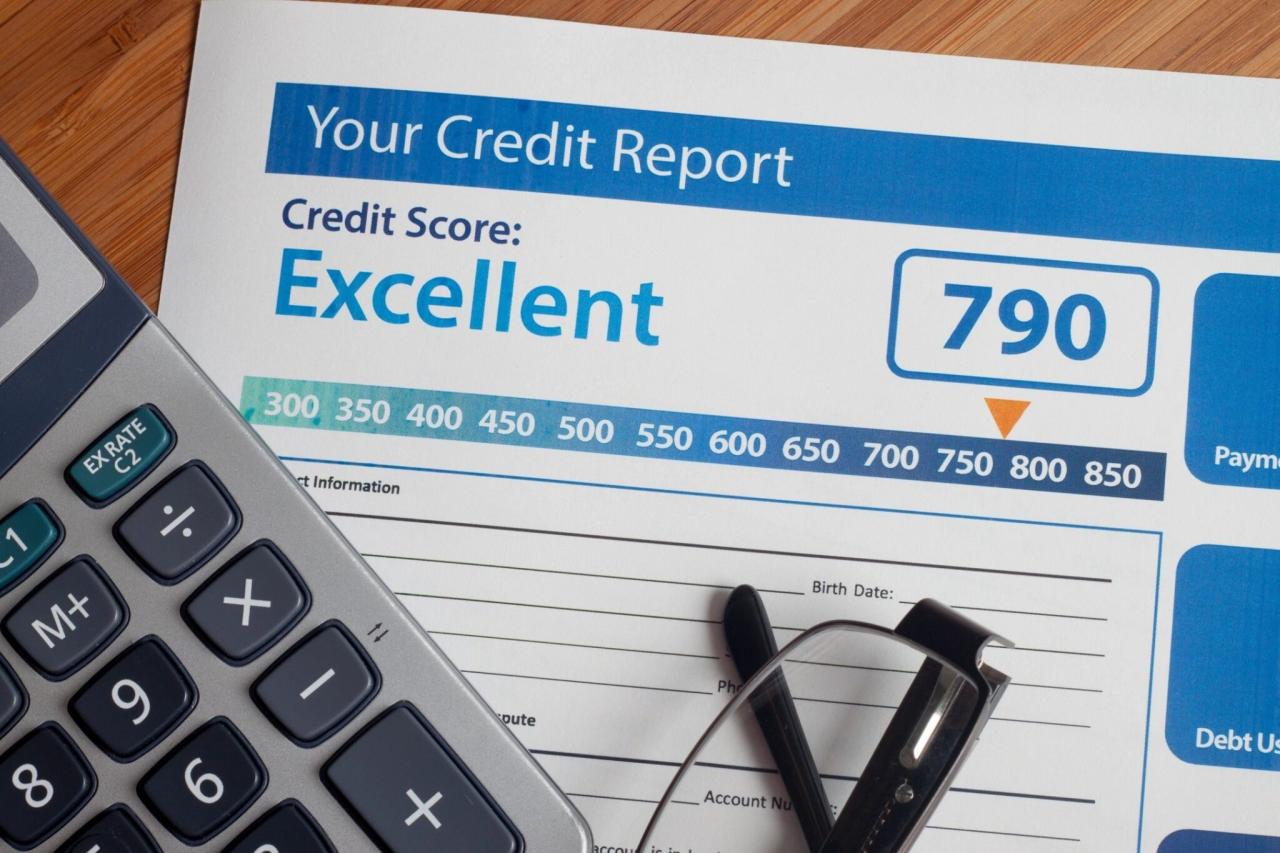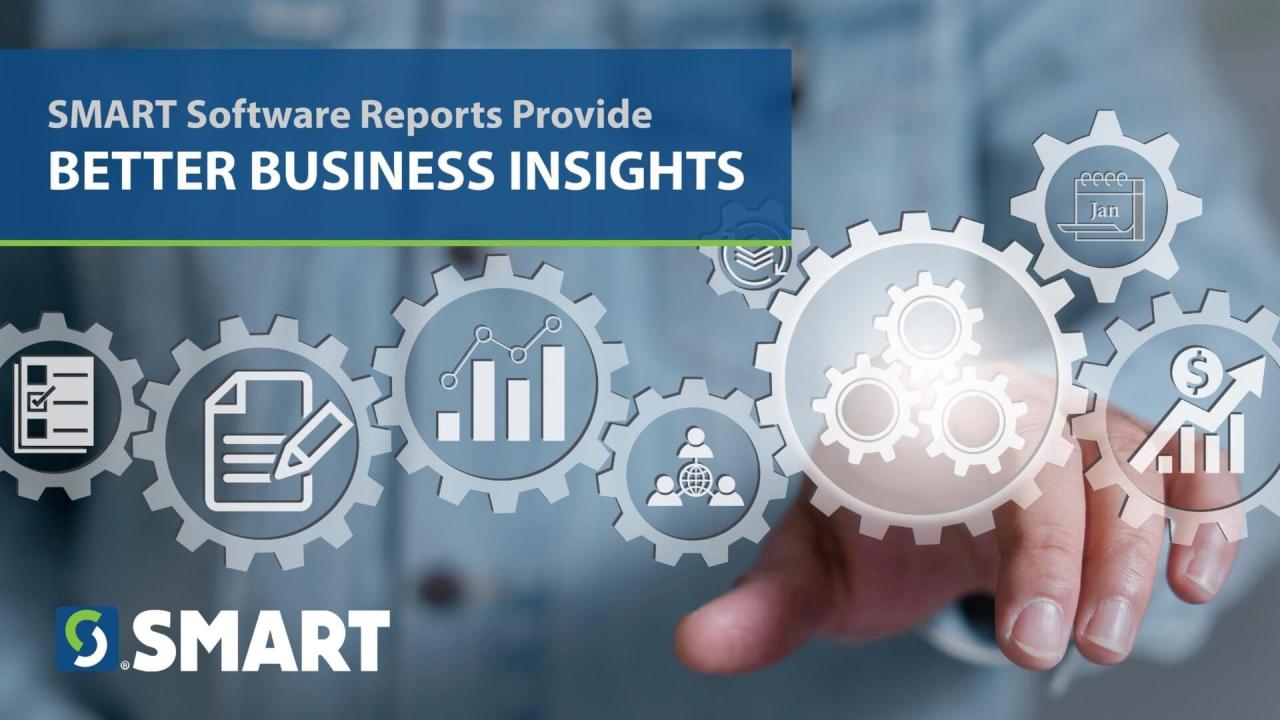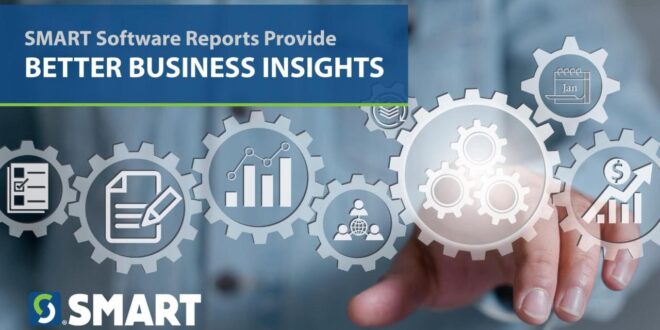Smart business credit reports are revolutionizing how businesses assess financial health and creditworthiness. These reports go beyond traditional credit reports, offering a more comprehensive and insightful view of a company’s financial standing.
By leveraging advanced data analytics and artificial intelligence, smart business credit reports provide real-time insights, predictive analytics, and customized recommendations. This allows businesses to make informed decisions regarding lending, investment, and risk management.
Data Sources and Collection

Smart business credit reports rely on a comprehensive collection of data from various sources to provide a holistic view of a company’s financial health and creditworthiness. These reports are essential for lenders, investors, and other stakeholders to make informed decisions about extending credit or investing in a business.
Data collection methods are designed to ensure accuracy and reliability, employing rigorous processes to validate and analyze the information gathered. This section delves into the primary data sources and the methodologies used to collect and analyze data for smart business credit reports.
Public Records
Public records are a vital source of information for smart business credit reports, offering insights into a company’s legal and financial history. These records are accessible to the public and can be obtained from various government agencies.
- Court Records: These records provide information on lawsuits, judgments, liens, and bankruptcies filed against a company. They offer valuable insights into a company’s legal history and potential financial liabilities.
- UCC Filings: Uniform Commercial Code (UCC) filings provide information on secured transactions, such as liens on a company’s assets. This data is crucial for understanding a company’s debt structure and its ability to secure financing.
- Secretary of State Records: These records contain information on business incorporations, registrations, and changes in ownership. They provide insights into a company’s legal structure and its history.
Financial Statements
Financial statements provide a detailed snapshot of a company’s financial performance and position. These statements are essential for assessing a company’s profitability, liquidity, and solvency.
- Income Statement: This statement shows a company’s revenues, expenses, and net income over a specific period. It provides insights into a company’s profitability and its ability to generate revenue.
- Balance Sheet: This statement presents a company’s assets, liabilities, and equity at a specific point in time. It offers insights into a company’s financial structure, liquidity, and solvency.
- Cash Flow Statement: This statement tracks a company’s cash inflows and outflows over a specific period. It provides insights into a company’s ability to generate cash and manage its working capital.
Trade Data, Smart business credit reports
Trade data provides information on a company’s payment history with its suppliers and customers. This data is essential for assessing a company’s creditworthiness and its ability to manage its accounts payable and receivable.
- Payment Histories: This data is collected from suppliers and other businesses that have extended credit to a company. It provides insights into a company’s payment patterns and its history of meeting financial obligations.
- Trade References: These are testimonials from suppliers and other businesses that have dealt with a company. They provide insights into a company’s business practices and its reputation within its industry.
Credit Bureau Data
Credit bureaus collect and maintain data on a company’s credit history, including its credit lines, payment history, and credit utilization. This data is essential for assessing a company’s overall creditworthiness and its ability to manage its credit obligations.
- Credit Scores: Credit bureaus use various models to calculate a company’s credit score, which reflects its creditworthiness. These scores are based on factors such as payment history, credit utilization, and the length of credit history.
- Credit Lines: This data provides information on a company’s existing credit lines, including their limits, interest rates, and outstanding balances. It offers insights into a company’s access to credit and its ability to manage its debt obligations.
Data Accuracy and Validation
The accuracy and validation of data are crucial for creating reliable smart business credit reports. This involves a rigorous process of verifying information from multiple sources and employing data cleansing techniques to ensure consistency and completeness.
“Data accuracy is paramount in credit reporting. It ensures that the information presented in the reports is reliable and trustworthy, enabling stakeholders to make informed decisions.”
- Cross-Referencing: Data from different sources is cross-referenced to identify inconsistencies and potential errors. This helps to ensure the accuracy and reliability of the information.
- Data Cleansing: This process involves removing duplicate records, correcting typos, and standardizing data formats. It ensures that the data is consistent and complete, enhancing the accuracy of the reports.
- Regular Updates: Data sources are regularly updated to ensure that the information in the reports is current and relevant. This helps to maintain the accuracy and timeliness of the reports.
Impact on Business Operations: Smart Business Credit Reports

Smart business credit reports can revolutionize how businesses operate, offering significant advantages in efficiency, risk management, and growth. They provide a comprehensive and real-time view of a company’s financial health, allowing for informed decision-making across various aspects of business operations.
Enhanced Efficiency
Smart business credit reports can streamline various business processes, leading to improved efficiency and productivity.
- Automated Credit Assessments: Automated credit scoring and risk assessments eliminate manual processes, saving time and resources. This allows businesses to quickly evaluate potential customers and suppliers, enabling faster decision-making. For example, a small business owner can instantly assess the creditworthiness of a new supplier, avoiding potential delays and financial risks.
- Streamlined Credit Management: Automated credit reporting systems can manage credit applications, monitor credit limits, and track payment history, freeing up valuable time for other critical tasks. This can lead to more efficient credit management and reduced administrative overhead. For instance, a large retailer can leverage automated systems to track customer payment patterns and adjust credit limits accordingly, optimizing cash flow and minimizing bad debt.
- Improved Data Analysis: Smart business credit reports provide access to detailed financial data and insights, enabling businesses to analyze trends, identify potential risks, and make informed decisions based on real-time information. This data-driven approach can help businesses optimize their operations, improve resource allocation, and enhance profitability. For instance, a manufacturing company can analyze credit data to identify suppliers with a history of late payments, allowing them to proactively mitigate potential supply chain disruptions.
Improved Risk Management
Smart business credit reports empower businesses to make informed decisions regarding credit risk, reducing the likelihood of financial losses and fostering a more secure financial environment.
- Early Warning Systems: Smart credit reports provide real-time updates on a company’s financial health, enabling businesses to identify potential risks early on. This allows them to take timely corrective actions, mitigating potential losses and minimizing the impact of unforeseen events. For example, a bank can monitor the creditworthiness of its borrowers through smart credit reports, allowing it to proactively identify potential delinquencies and take steps to minimize losses.
- Reduced Bad Debt: By accurately assessing the creditworthiness of customers and suppliers, businesses can minimize the risk of extending credit to unreliable parties. This reduces the likelihood of bad debt, leading to improved cash flow and financial stability. For instance, a small business can use smart credit reports to evaluate the credit history of potential customers before extending credit, reducing the risk of default and ensuring the stability of their financial operations.
- Improved Risk Mitigation: Smart credit reports provide a comprehensive view of a company’s financial health, enabling businesses to identify and manage various risks. This includes assessing the likelihood of default, analyzing the company’s financial stability, and evaluating potential vulnerabilities. For instance, an insurance company can use smart credit reports to assess the risk profile of potential clients, enabling them to tailor insurance policies and pricing strategies based on individual risk levels.
Growth and Expansion
Smart business credit reports facilitate growth by providing the necessary insights and tools to make informed decisions regarding expansion, partnerships, and investments.
- Strategic Partnerships: By evaluating the creditworthiness of potential partners, businesses can identify reliable and financially sound collaborators, reducing the risk of costly partnerships and fostering sustainable growth. For example, a technology startup can leverage smart credit reports to evaluate the financial health of potential investors, ensuring they secure funding from reputable and reliable sources.
- Informed Investment Decisions: Smart credit reports provide valuable insights into the financial health of potential investment targets, allowing businesses to make informed decisions regarding acquisitions, mergers, and other strategic investments. This reduces the risk of investing in financially unstable companies and promotes long-term growth. For instance, a private equity firm can use smart credit reports to assess the financial health of potential acquisition targets, ensuring they invest in companies with a strong track record and a stable financial foundation.
- Market Expansion: By providing a comprehensive view of the financial landscape, smart business credit reports empower businesses to identify new markets, assess the creditworthiness of potential customers, and make informed decisions regarding market expansion. This data-driven approach can lead to increased revenue and market share. For example, a manufacturing company can use smart credit reports to identify new markets with a high concentration of creditworthy customers, enabling them to expand their reach and capitalize on new growth opportunities.
Challenges and Considerations
Implementing smart business credit reporting systems can present challenges and require careful consideration to ensure successful adoption and maximize benefits.
- Data Security and Privacy: Maintaining data security and privacy is crucial when implementing smart business credit reporting systems. Businesses must comply with relevant regulations and implement robust security measures to protect sensitive financial information. For example, businesses should encrypt data, implement access controls, and regularly monitor for security breaches to safeguard customer and partner data.
- Data Accuracy and Reliability: The accuracy and reliability of the data used in smart credit reporting systems are paramount. Businesses must ensure that data sources are reputable, accurate, and regularly updated to avoid making decisions based on outdated or inaccurate information. For example, businesses should regularly verify data sources, implement data quality checks, and utilize data validation techniques to ensure the accuracy and reliability of the information used in credit assessments.
- System Integration: Integrating smart credit reporting systems with existing business systems can be complex and require careful planning and execution. Businesses must ensure compatibility, seamless data flow, and minimal disruption to existing operations. For example, businesses should carefully evaluate existing systems, plan for data migration, and engage experienced IT professionals to ensure a smooth integration process.
Wrap-Up

In conclusion, smart business credit reports are becoming increasingly crucial for businesses seeking to navigate the complex financial landscape. By providing a more comprehensive and insightful view of financial health, these reports empower businesses to make informed decisions, optimize operations, and achieve sustainable growth.
Detailed FAQs
What are the main differences between smart business credit reports and traditional business credit reports?
Smart business credit reports utilize advanced data analytics and AI to provide more comprehensive and insightful information, including real-time updates, predictive analytics, and customized recommendations. Traditional reports are typically based on historical data and may not offer the same level of depth or analysis.
How can I access smart business credit reports?
Several companies specialize in providing smart business credit reports. You can access these reports through their websites or by contacting them directly. Some financial institutions and lending platforms may also offer access to these reports.
What are the potential risks associated with using smart business credit reports?
As with any data-driven tool, it’s essential to be aware of potential risks associated with smart business credit reports. These include data accuracy, bias in algorithms, and the potential for misuse of information. It’s crucial to select reputable providers and carefully evaluate the information provided.
 Norfolk Publications Publications ORG in Norfolk!
Norfolk Publications Publications ORG in Norfolk!

